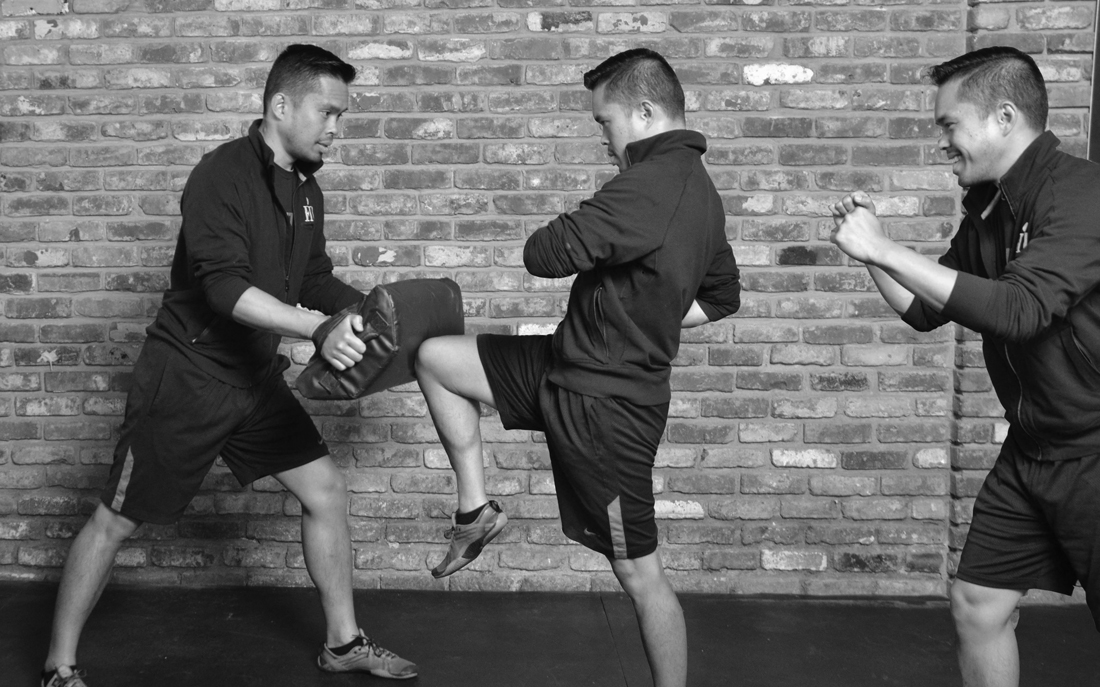 Most of us know that physical activity is the key to disease prevention, weight management, stress reduction and a general sense of well-being. Here are 7 habits I adopted to support a healthy and active lifestyle.
Most of us know that physical activity is the key to disease prevention, weight management, stress reduction and a general sense of well-being. Here are 7 habits I adopted to support a healthy and active lifestyle.
1. Prioritize fitness – Everyone struggles with how to fit physical activity into their busy schedules. With 60-hour workweeks, business travel, running a household, or juggling school and work there is never enough time. Fit & active people prioritize their fitness, elevating it’s importance in their mind and in their life. The key to success is to put fitness at the top of the list.
2. Do something everyday – Whether it is a hour exercise class, 45 minutes in the weight room, 20 minutes of calisthenics, or a 10 minute walk around the block, fit & active people do something active everyday. Consistency helps develop new habits.
3. Vary activities – Following the same workout routine day after day can not only become boring and tiresome, but may result in overuse injuries and even diminishing fitness returns. Fit & active people focus on developing all components of physical fitness and making sure all the major muscle groups are included.
4. Set realistic goals – Goals are an essential part of behavioral change and progressing fitness levels. The wrong goal, one that is unrealistic to our current level of fitness, or level of commitment, can be defeating and unproductive. Fit & active people set goals that are realistic and achievable, while still pushing themselves to meet the next challenge.
5. Fuel up with healthy foods – Good nutrition is a priority for fit & active people. A well balanced diet consisting of a variety of fruits and vegetables, lean proteins, and complex carbohydrates provides energy for all bodily systems to function optimally. Low quality foods do not provide adequate energy and promote the storage of fat.
6. Social network of active friends – working out with a partner or a group can create a supportive relationship for physical activity. Fit & active people look for social networks that provide a motivating and positive environment to keep physically active, meet challenges, and celebrate successes.
7. Adequate recovery – sleep is important to both our mental and physical wellbeing. Research has found a link between sleep deprivation and impaired cognition and obesity. Sleep in also important to exercise recovery. During sleep the rate of cell building is increased while the breakdown of cells is decreased. This means that muscle is repaired and becomes stronger during sleep. It is rumored that Paula Radcliffe, world record marathon runner and Olympic athlete, sleeps about 11 hours a day.
Karen Moreno, MA Candidacy Kinesiology/Exercise Physiology
BA Social Science/Education
Kira Vargas
Personal Trainer
Contact
Kira brings a unique perspective to fitness coaching, combining her engineering background with a passion for movement and community. A graduate of Carnegie Mellon University with a B.S. in Materials Science Engineering, Kira spent five years in the tech industry before pivoting to fitness. Over the past four years, she has honed her coaching skills at a CrossFit gym in South San Jose, specializing in group classes, Olympic weightlifting, powerlifting, gymnastics, and functional fitness. Her clients range from young adults to seasoned athletes in their 80s.
Kira’s own journey in fitness has been transformative—she’s lost 25 pounds since starting CrossFit and gained a deep appreciation for how consistency and patience unlock personal potential. In an age of instant gratification, she advocates for small, consistent steps, helping her clients build strength, resilience, and self-respect. Her philosophy is simple: show up, work hard, and anything is possible.
When she’s not coaching or training, Kira enjoys competing in CrossFit, exploring new sports, experimenting with ice baths, and indulging in great food.
What I love about FiT: FiT is more than a gym, it's a place where you can transform your entire life. The leaders and staff here have their heart in the work, and truly care about creating positive change in the lives of our members.
Certifications:
•CrossFit Level 2
•ISSA Certified Personal Trainer
•USA Weightlifting Level 1 (expected January 2025)
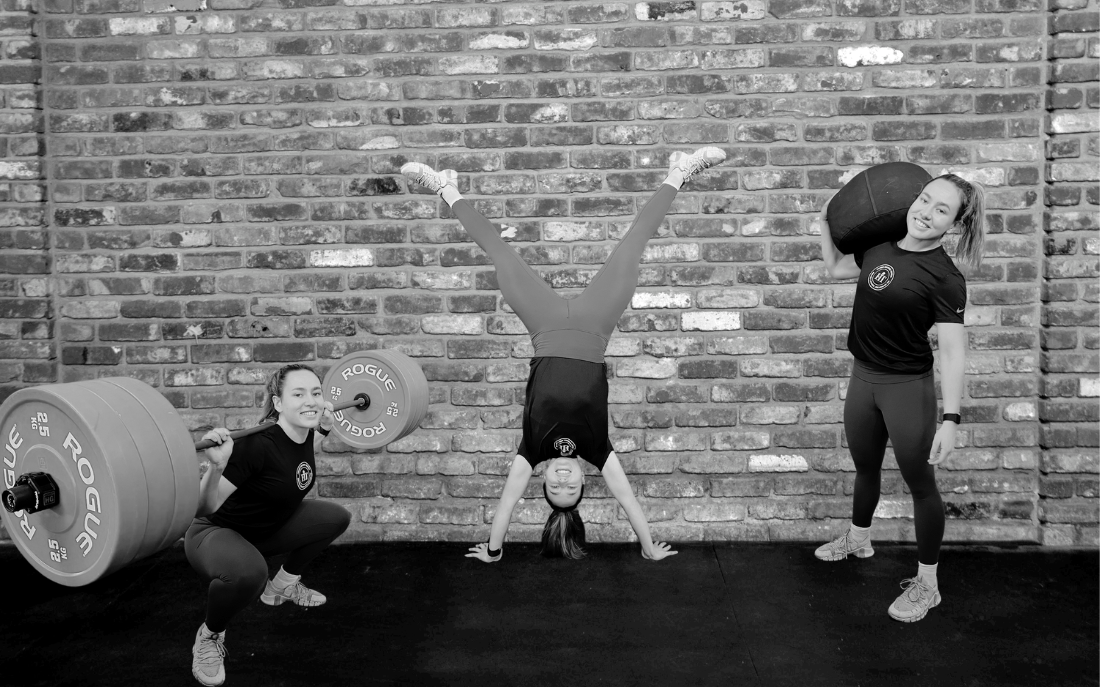
Christian Lee
Personal Trainer
Contact
What I love about FiT: The supportive energy and environment. The staff is legitimately there to help when it comes to just about anything. It helps that they are all extremely capable as well. Another thing that I love about FiT is its approach. FiT's philosophy centers on more than just exercise and nutrition. It focuses on an all-around emphasis on health and well-being that include sleep and stress management strategies.
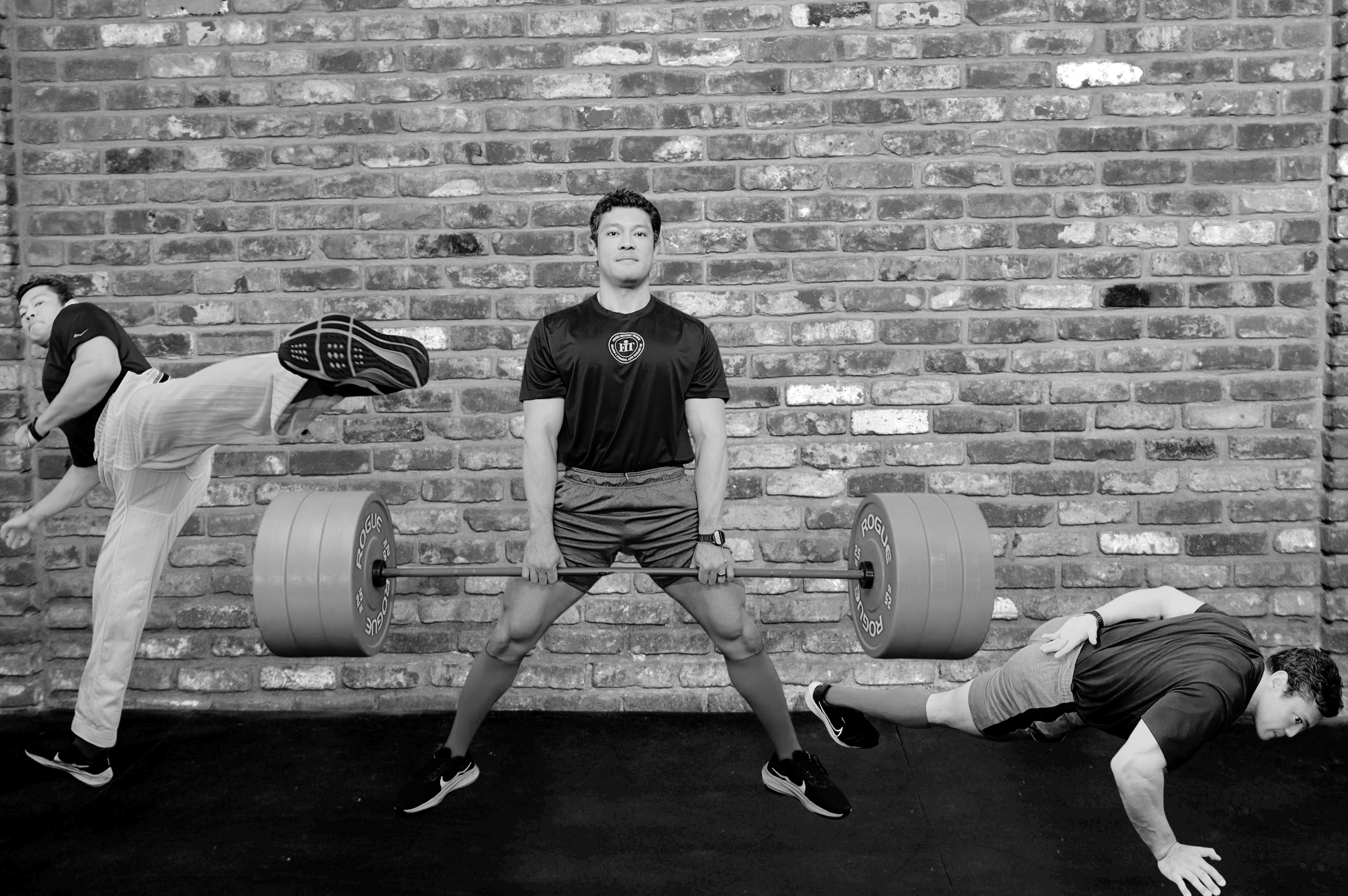
Nick Weigel
Physical Therapist
Contact
Nick graduated from The Ohio State University in 2010 with a degree in English. His focus at that time was to continue rowing competitively, which brought him to the Boston area. There he completed his Doctorate of Physical Therapy from Massachusetts General Hospital Institute of Health Professions in 2018.
In Boston Nick worked at a clinic well known for treating professional runners and other endurance athletes. He enjoyed working with high schoolers and their parents the most. It was here he developed a passion for treating tendinopathy. Having had his own experience with a high hamstring tendinopathy he found it helpful to be able to empathize with others going through this uniquely frustrating condition. It also was here that Nick first started to learn about bike fitting and he has since gone on to obtain his Level 1 International Bike Fit Institute certification.
Nick has enjoyed being a competitive endurance athlete for 17 years. He has gone from world championship trials as a rower, running 5ks to half marathons to ultra trail runs in the White Mountains, to racing UCI cyclocross as a category 2 cyclist. Nick no longer races competitively due to a heart condition but you can now find him olympic weightlifting, mountain biking or gravel riding, taking photos of bike races, or hiking with his wife and 2 dogs.
Nick enjoys taking an active treatment approach with an emphasis on play and variability, he believes movement is the best medicine, and often complex problems have simple solutions.
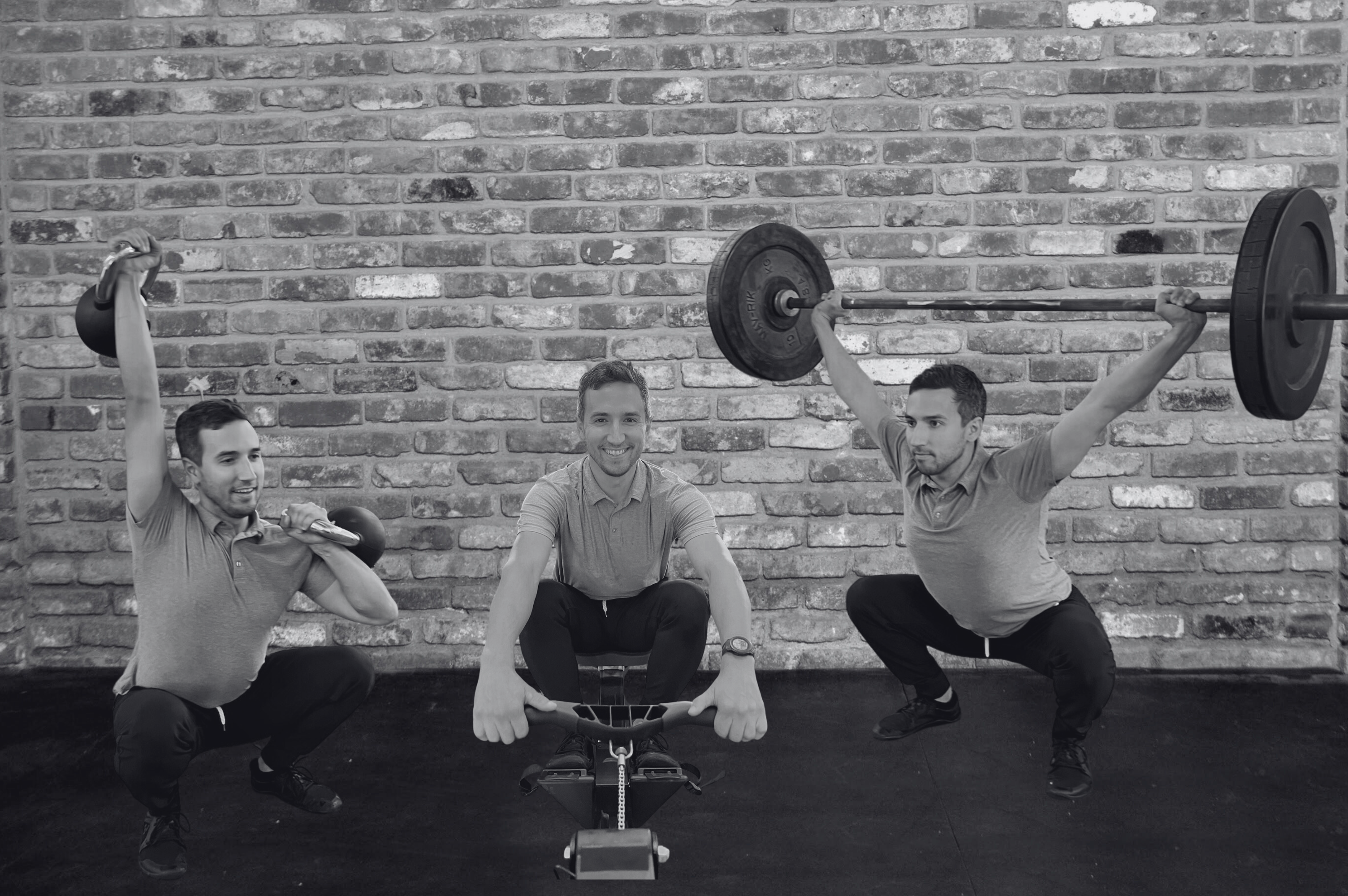
Kristin Pampeyan
Trainer
What I love about FiT: That everyone is invested in the community whether it's by hosting additional activities or sharing knowledge. It's all to make each other better and help out the clients.
Favorite sports: Swimming and Softball
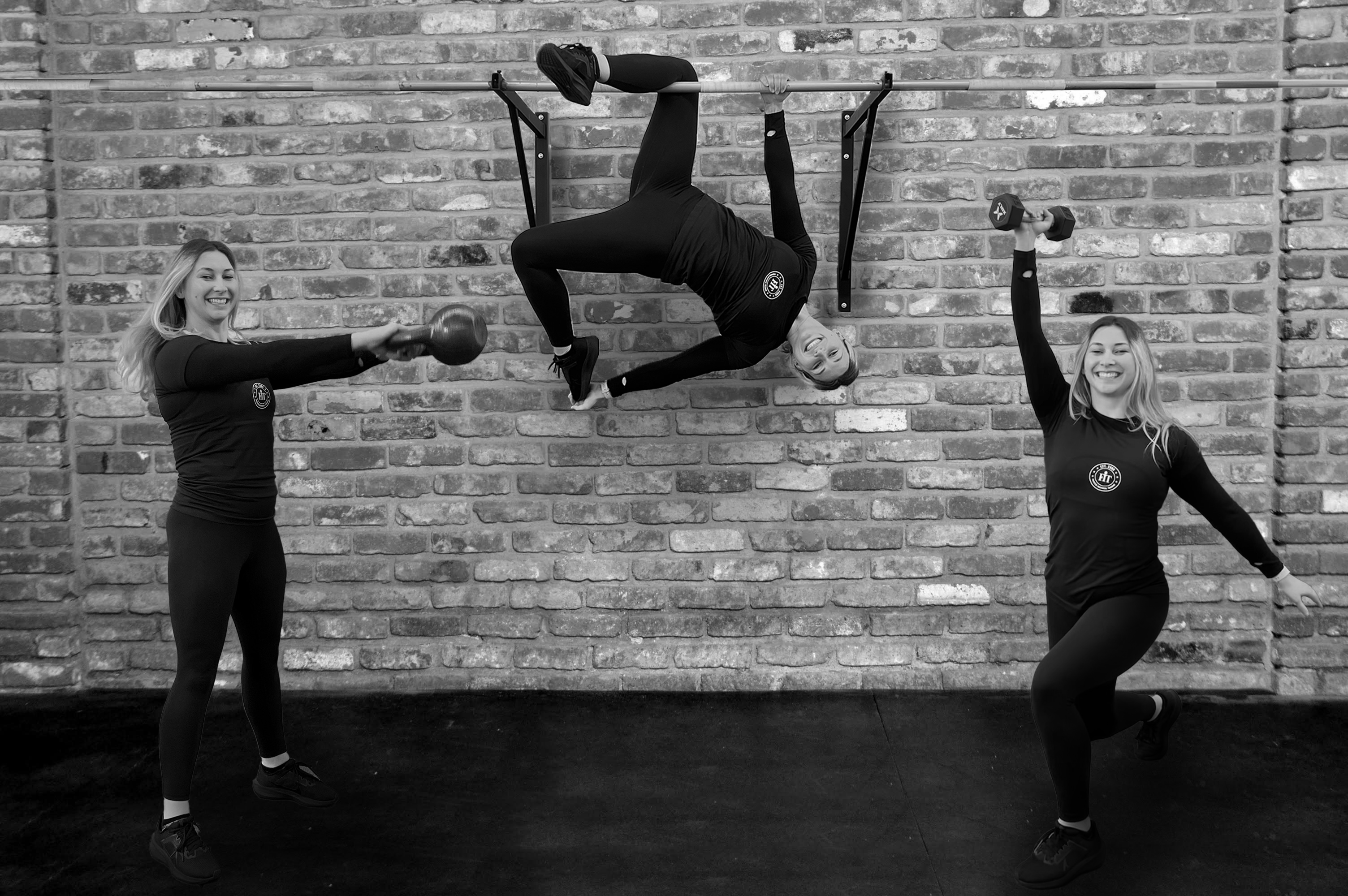
Dae-Von Bishop
Personal Trainer
All the way from East Palo Alto, Dae-Von was an avid basketball player and fan since the age of 10. From Eastside College Prep to Sonoma State to Foothill where he received his AA in psychology. Dae-Von developed a passion for training and helping others stay active and healthy after a bad ankle sprain in high school that occurred during the basketball season. Dae-Von received training the following summer at The Riekes Center, leading him to have a healthy senior year season as well as making 2nd team all league.This is what inspired him to become a trainer and help other athletes stay in great shape. At 20 years old, Dae-Von’s personal training journey began at The Riekes Center, and he hasn’t looked back since.
Dae-Von holds certifications in personal training through NASM, archery, as well as speed and agility and weightlifting both through NSPA. He even will do some basketball skill development on the side for young hoopers. His goal is to help people stay as fit and active as possible with little to no complications. I love training groups of athletes in either middle or high school. Those age groups tend to be the best time for athletes to get faster and stronger, as well as they begin to understand movement patterns which allow them to perform at an elite level. There is also a natural competitive aspect of training in groups that pushes kids to go harder during drills.
In his free time, you can find Dae-Von shooting hoops, working out, playing video games, spending time with friends, trying new foods(as long as there is no avocado), or hanging out with his frenchie, Trouble.
- Personal Trainer (NASM)
- Certified Speed and Agility Coach (National Sports Performance Association)
- Certified Weightlifting Coach (National Sports Performance Association)
- Archery Lvl. 2 (USA Archery)
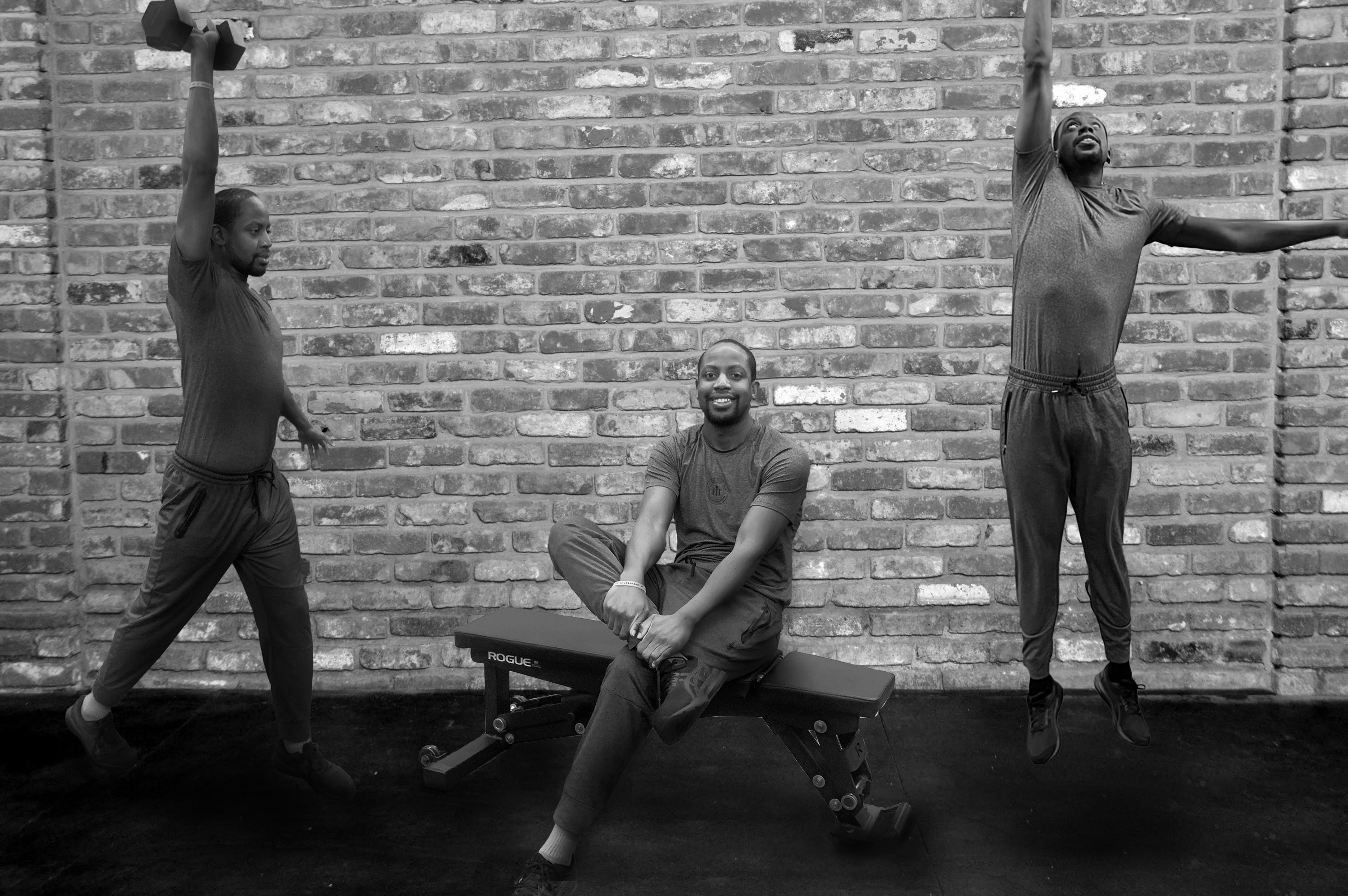
Jon Angeles
Trainer
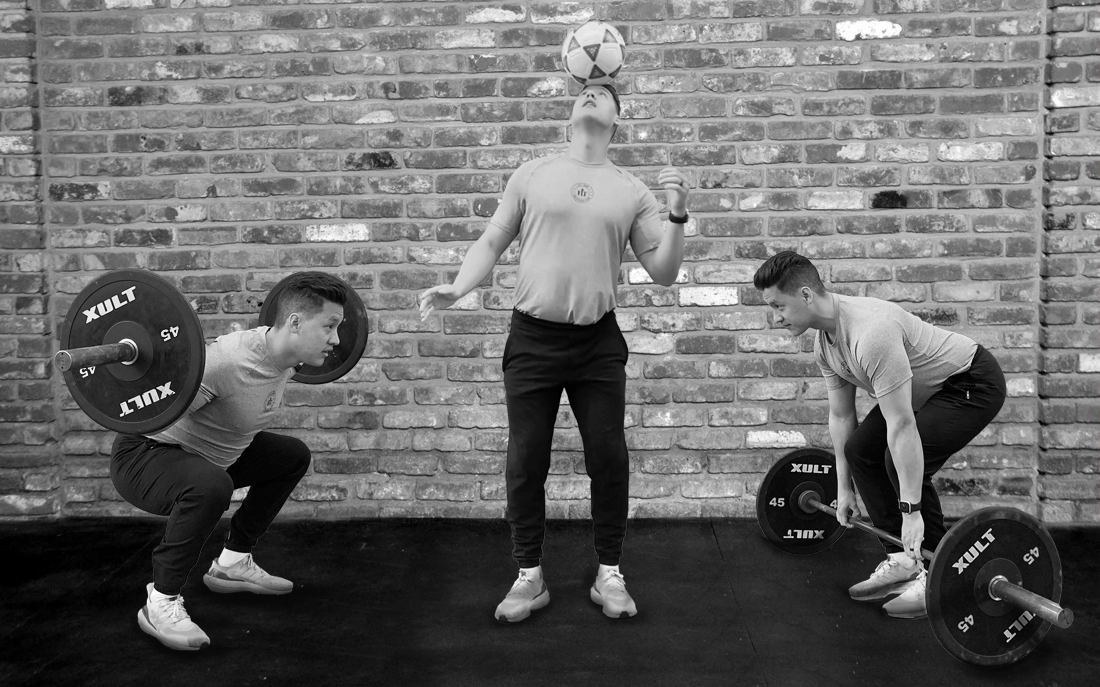
James Frederick
Trainer
Contact
-
Dynamic Variable Resistance Training (DVRT) Level 1 Certification
-
Certificate in Nutrition (FAB Academy)
-
Certificate in Applied Stretching Theory and Practice (FTP)
-
NASM-CPT
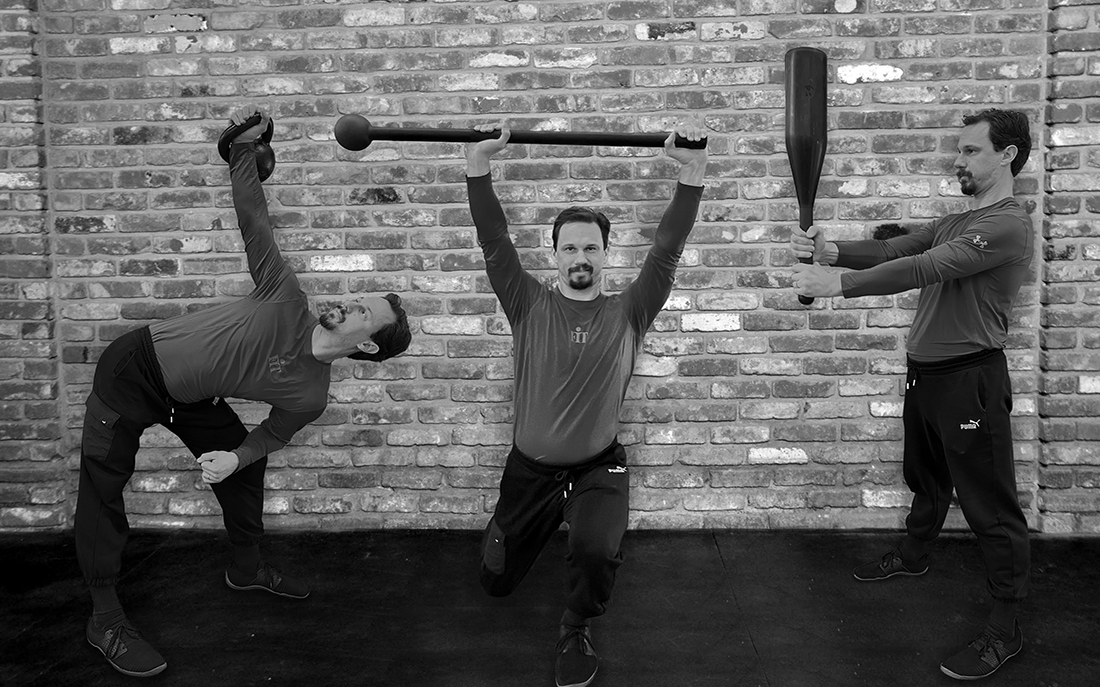
Hannah Golden
Trainer
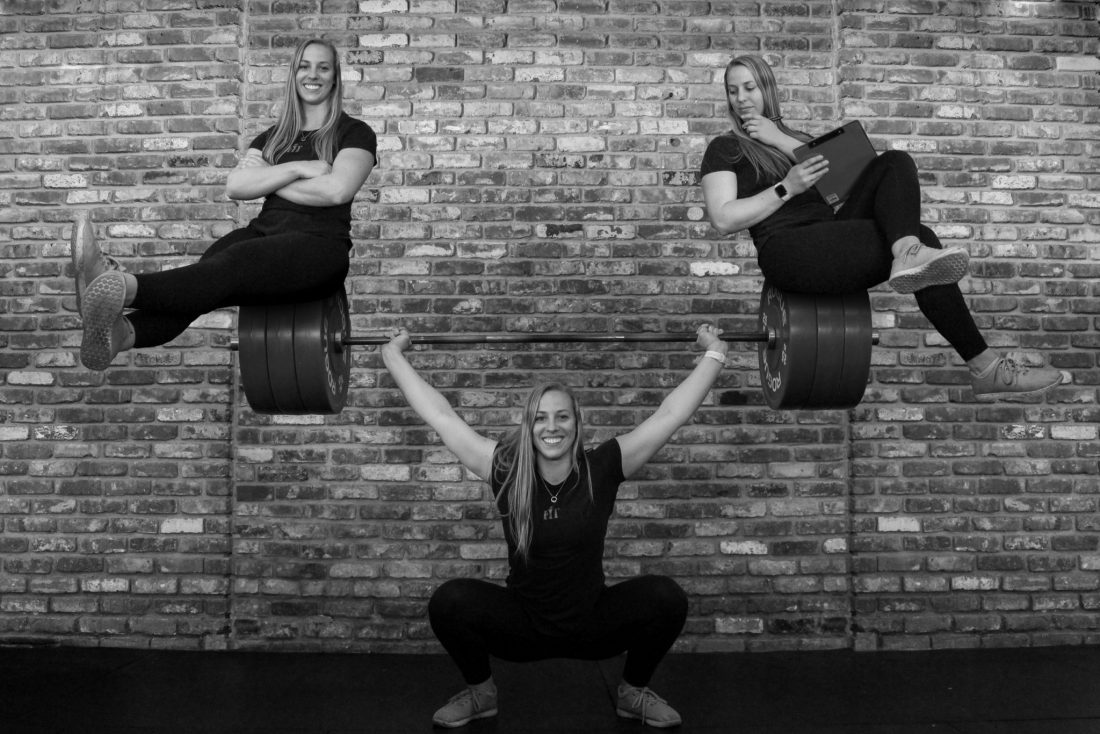
Serena Earwicker
Operations Manager
Contact
Serena manages the day-to-day operations at FIT. If you need help with something apart from training, she is the one to get it done.
Outside of FIT you will find Serena hiking, biking and playing at the beach with her family.
What I love about FiT: FiT is welcoming and supportive to all. It feels like a hug, a sweaty one. Haha
Favorite sports: Anything I get to see live! Love the energy.

Tracey Downing
Owner
Contact
Tracey Downing has dedicated her life's journey to empowering individuals to discover newfound confidence in their physical abilities and take command of their long-term well-being. Together with her husband, Thom, she established FiT, a health promotion company, in 2000, impacting numerous lives by guiding them towards positive lifestyle shifts and instilling the importance of prioritizing their health.
Her academic journey at the University of Michigan, where she graduated with a degree in Kinesiology, was complemented by a vibrant period of exploration. Tracey's adventures took her across the globe to live in places like New Zealand, Ireland, and Scotland. These enriching experiences allowed her to indulge her passion for travel while simultaneously nurturing her professional growth, with roles in clinical and professional sports settings.
Beyond her entrepreneurial pursuits, Tracey treasures her role as a mother to two wonderful children. Outside of her business endeavors, she has completed an Ironman Triathlete, a testament to her unwavering determination, had the incredible honor of being an Olympic Torch Bearer for the Salt Lake City Olympics, and is a 20 year survivor of breast cancer.
In Tracey's world, fostering physical wellness is not just a profession; it's a lifelong vocation driven by a genuine desire to inspire and uplift others on their unique journeys toward lasting health and vitality.
What I love about FiT: Seeing people change: doing more than they thought they could, learning more than they thought they would, and showing up to make themselves better.
Favorite sports: Playing tennis and watching anything my kids are playing

Kendra Wagers
Massage Therapist
Contact
Kendra Wagers has been a Massage Therapist since 2001. A native to California, she began her massage career in the Central valley working with various injury and chronic pain methods under experienced Chiropractors and physical therapists. In 2003 she relocated to Las Vegas, NV to attend the Nevada School of Massage Therapy’s accredited massage program which led to obtaining her National certification from NCBTMB. For over 13 years she worked as a licensed massage therapist in Nevada, including employment at top rated Spas on the Las Vegas strip. Receiving training in various modalities over the years including; Hawaiian Lomilomi, Thai, Sports and Shiatsu. In January of 2017 Kendra decided to return to California and is currently enrolled in the Traditional Chinese Medicine program at Five Branches University, furthering her education on overall health and wellness. With more than 17 years of experience and over 1500 hours in training Kendra has been able to hone in on her passion for healing while combining multiple techniques to provide a personalized and detailed massage to every guest. Her serene approach combined with her roots in structural techniques, offers harmony, balance, and ease to injuries or everyday stresses.
CA State Massage License #73011
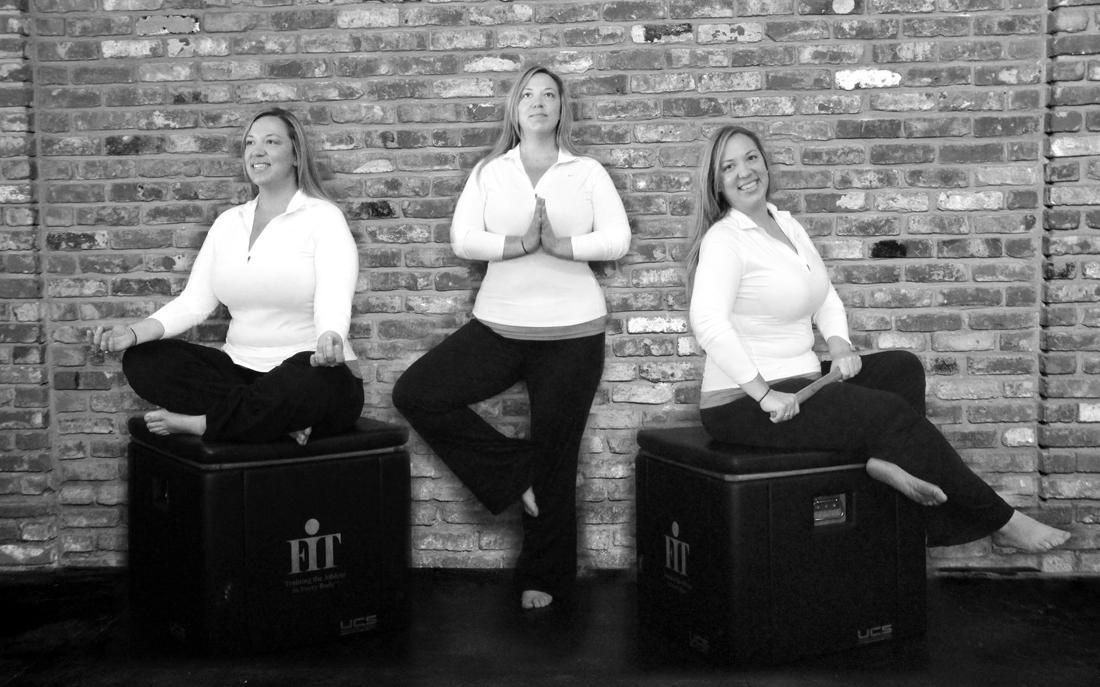
Katie Deangelis
Personal Trainer
Strength and Wellness Coach
- American Council on Exercise
- Crossfit Level One
- NSCA Certified Strength and Conditioning Specialist, In Progress
- Precision Nutrition Level 1 Certified, In Progress
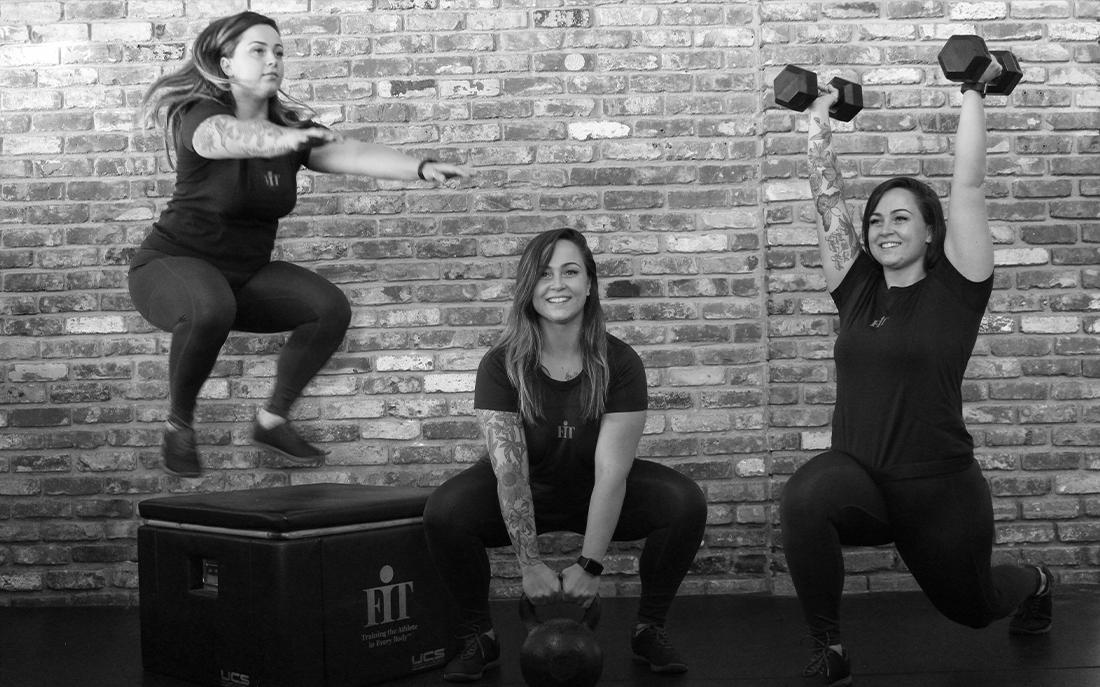
Kevin Martin
Strength and Wellness Coach
Personal Trainer
Certified Strength and Conditioning Specialist
OPEX CCP
Contact
Kevin graduated from Trinity University in San Antonio, TX with a B.S. in Business Administration with a focus in marketing. As a student, Kevin was a five-time conference champion in the 1-meter and 3-meter springboard diving events. He is a Certified Strength and Conditioning Specialist with the National Strength and Conditioning Association.
He has a particular passion for rehabilitation and improving overall functional status. He enjoys identifying and correcting areas of the body that are not operating at their full potential so that everyone can live life to the fullest!
Kevin has completed a full ironman, multiple 70.3 triathlons, 2 full marathons, as well as several shorter distance triathlons and road races. In addition to triathlon, he has a background in gymnastics, swimming, diving, and volleyball. He enjoys helping everyone find the athlete within themselves and find a love for movement and exercise.
When Kevin isn’t training at FiT or exercising, he enjoys cooking, surfing, hiking, and spending time with his wife and dog. He especially loves being a father his young daughter Mayley.
What I love about FiT: Community, Hard work, Supportive, Fun
Favorite sport: Volleyball, Surfing, Diving, Running, Cycling, Swimming (triathlon), Weight lifting. I love watching all sports.
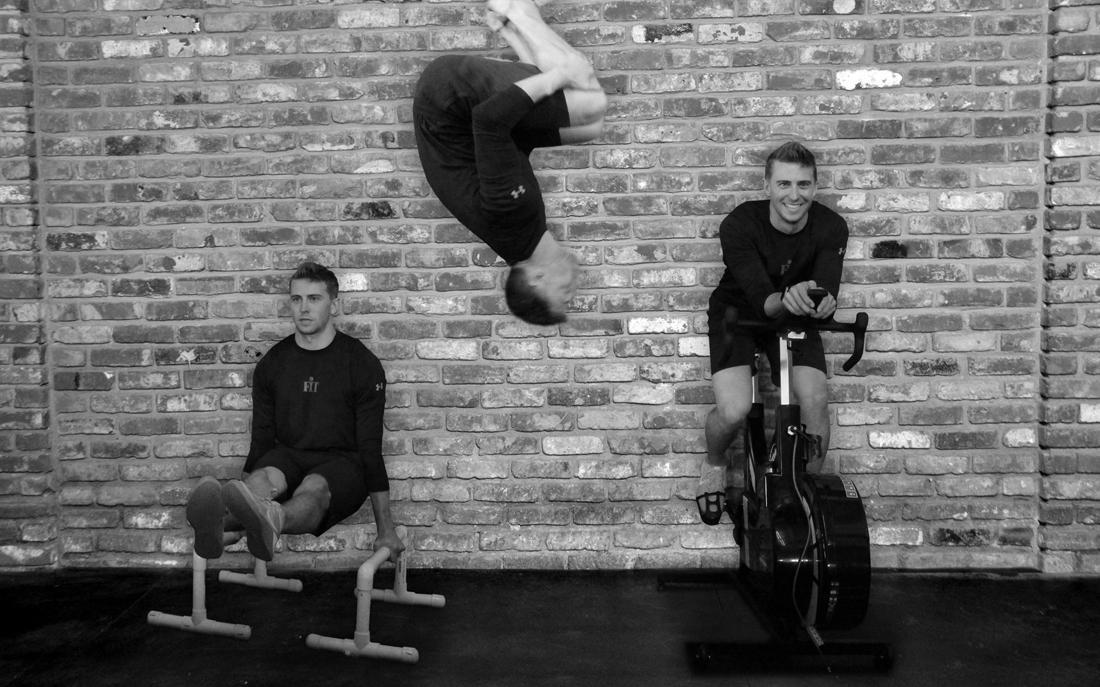
Juliana Oliveira
Trainer
Contact
What I love about FiT: I love the schedule flexibility.
Favorite sports: Snorkeling and swimming
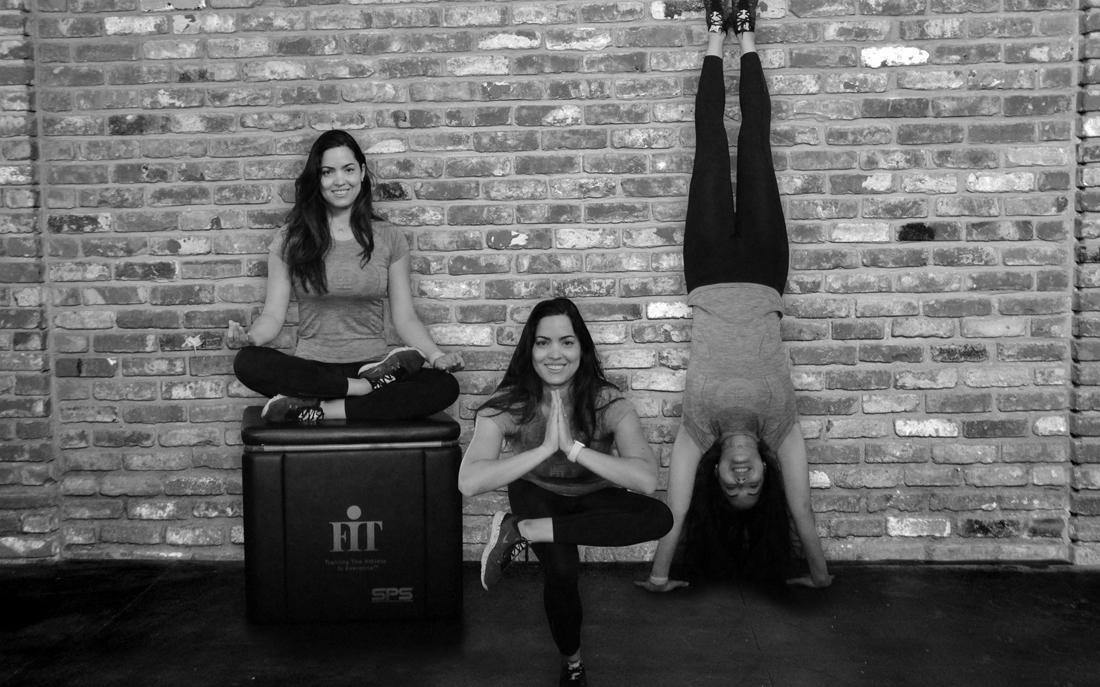
Angelo de la Cruz
Orthopedic Massage Therapist & Personal Trainer
Contact
While studying biological sciences at Cal Poly SLO, it became clear that my health was suffering. I was always tired, I couldn’t sleep well, I had digestive issues, and my emotions would swing dramatically at times. The realization came that in order for me to enjoy life to its fullest, I had to get serious about improving the quality of my health.
Since then, I’ve studied with doctors, physical therapists, clinical nutritionists, physical trainers, bodyworkers, and top innovators in the field of health & wellness. Instead of chasing the symptoms of illness, the most effective approaches to well-being are those that work to eliminate things that degrade health AND instill lifestyle habits that allow the natural environment of our bodies and mind to operate as efficiently as possible. In this way, we can be lead lives with less pain & sickness.
My work aims to use the technology of the body to help you live a more vibrant & productive life.
Some of the things I have fun doing are Olympic Weightlifting, breakdancing, parkour & free-running, snowboarding, creating electronic music, digital art photography/ videography, competing in American Ninja Warrior (My competition run is here) & learning about quantum physics.
What I love about FiT: Uplifting, motivating, supportive
Favorite sport: Martial Arts, ninja warrior obstacle courses, break dancing
- Former Life Science Support Scientist at NASA Ames Research Center
- Certified High Performance Coach
- 2nd Degree Black Belt in Taekwondo
- CrossFit – Level 1 Certification
- USA Weightlifting Club Coach Certification
- Intrinsic Coach Certification – Life & Health Coaching
- BS Anatomy & Physiology
- American Massage Therapy Association – Professional Member
- Nationally Certified in Therapeutic Massage & Bodywork
- Certified Hendrickson Method Instructor
- Primal Reflex Release Instructor
- Certified Massage Therapist
- Certified Functional Diagnostic Nutrition Practitioner
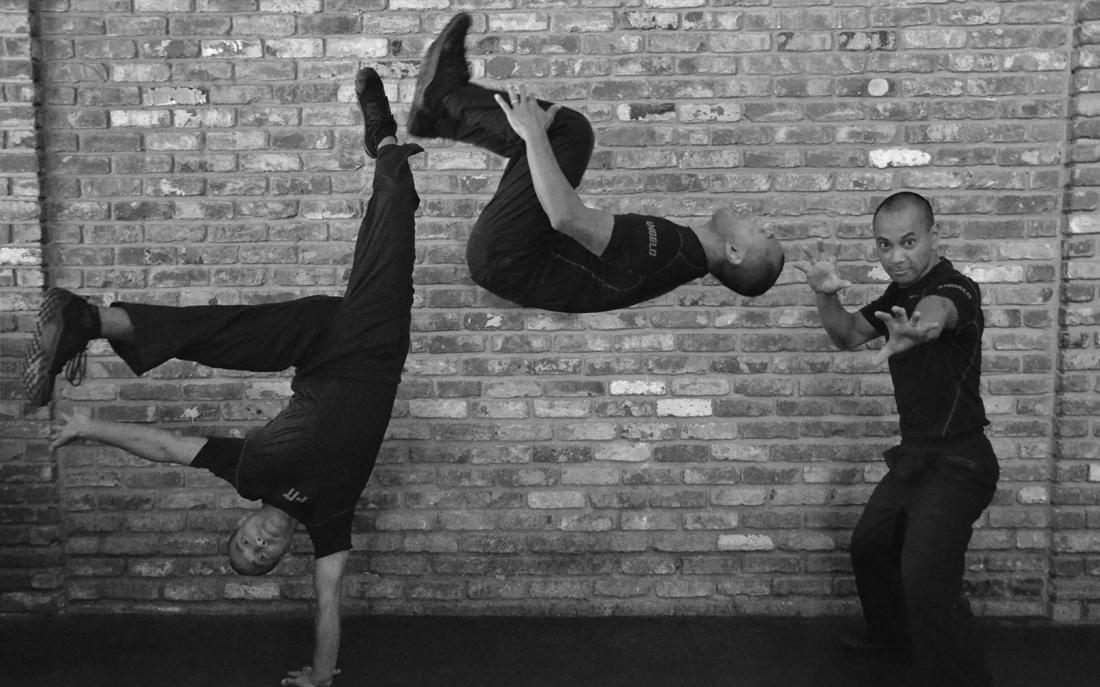
Shaun Conness
Trainer
- USAW Club Coach
- NASM Certified Trainer
- TPI Golf Fitness Instructor
- CHEK Practitioner Level 1
- CHEK Certified Golf Biomechanics Specialist

Jennifer Mulry
Personal Trainer
Contact
What I love about FiT: I love the family atmosphere at FiT and the collective effort to all be the healthiest version of ourselves.
Favorite Sport(s): Basketball & Swimming
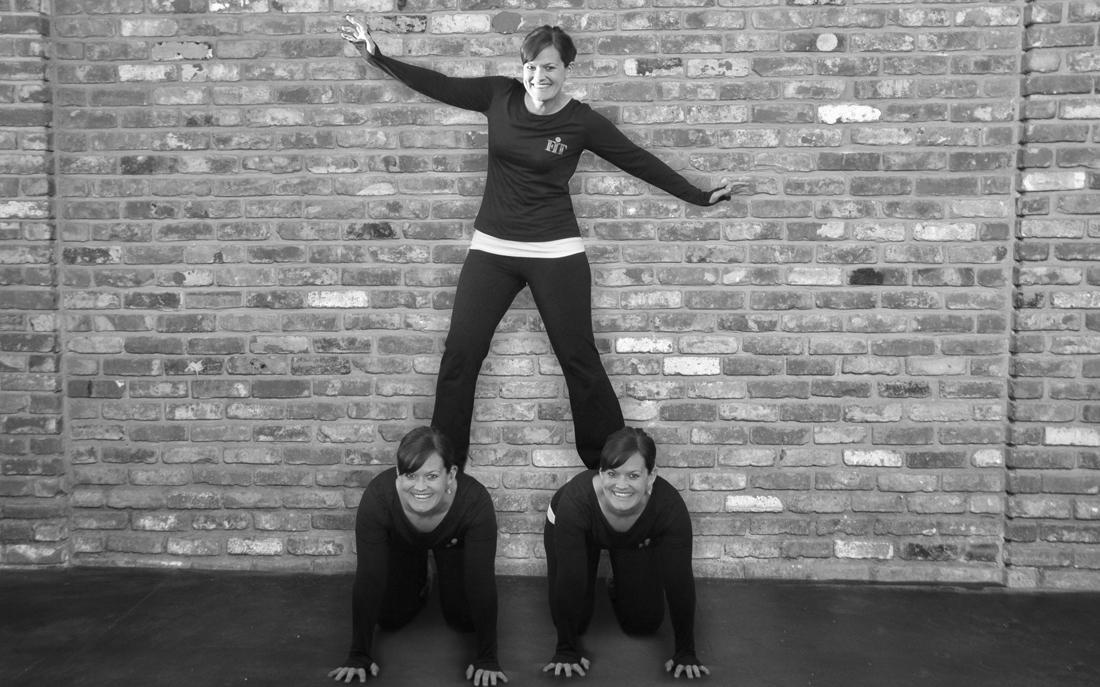
Jeff Samson
Trainer
Martial Arts Trainer
Assisted Stretch Practitioner
Contact
Jeff has been working with clients in the Bay Area since 2007 and performs personal training, martial arts instruction, and assisted stretching to youth, working adults and retired seniors. Most of his youth was spent as an unathletic chubby kid who found various ways of getting into trouble. It wasn't till he was a young adult that he began to study fitness, train himself and learn martial arts. He entered and won a fitness transformation competition in 2006 which changed his life forever. The personal training he received and positive changes he saw from the competition inspired him to teach others.
Jeff went back to school and earned his Fitness Specialist certification through the Wellness and Human Performance Department of Mission College and has held certifications in Circular Strength Training, USAW Olympic Weightlifting, and Bioforce Conditioning Coach. He currently holds a BA in Humanities from The New College of California, is a Life Stretch Instructor through the Stretch to Win Institute and certified FST (Fascial Stretch Therapy) practicioner.
Jeff is a longtime local having lived in California all his life from San Diego to the Bay Area. When he's not training clients or learning new things about health and fitness he enjoys trying new restaurants, sipping specialty coffee, whiskey tasting, looking for whales in the sea and taking road trips.
What I love about FiT: Great space, staff, clients, ability to pursue my passions
Favorite sport: Jiujitsu
